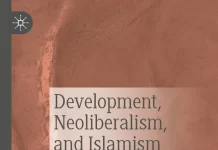
 RAJENDRA SENCHUREY
RAJENDRA SENCHUREY
The labour migration has substantial importance in the rural economy of Nepal. The same job in other countries, be it India or the Gulf, is more remunerative than in Nepal. As a result, many Nepali youths are compelled, and willing, to migrate abroad. This has resulted in a dramatic change in the family and social structures of the villages; for instance, helpless parents in the villages, wives with children in the cities and the breadwinners in the Gulf.
Let’s go through three common case scenarios.
In the eve of Valentine’s Day last year, Sudeep Kumar Rai, 24, of Phedi – 4, Khotang District, killed his wife Sushma Rai, 22, after knowing that she had an extra-marital affair and was pregnant from her paramour. Sudeep had just returned from abroad.

During a research study last year, I met a man living in the USA who had come back home after 5 years to discover his wife merrymaking with a ‘riffraff yobo’. His work at a gasoline station in a US city brought him all prosperity in Nepal. Within a few years, he had bought a cozy villa in Kathmandu. A year later, his wife asked him to buy a car for her and he did that instantly!
However, through his friends and family he came to know about her dishonest activities. He was shocked to hear that she brings a man home every day. The man returned home, knew the reality and divorced his wife.
In another instance, one of my cousins eloped with her absent-hubby’s pal when just a week remained for his return from Malaysia. Four days later, grief-stricken due to conjugal betrayal, he happened to insert his left hand into the electric cleaver. His hand was nearly chopped off. He was treated, compensated and sent back to Nepal. It became more than an insult to his injury when he realized that the money he bagged in exchange of his arduous work abroad had been haphazardly spent by his wife.
As she stayed in the district headquarters, his parents had no idea how the remittance money was being utilized. Reportedly, she used to provide a small amount to her father-in-law when he visited every 3 months to see his grandson. And they were happy with that. The first grader still doesn’t know why his mother and his dear uncle bought him a cycle and lots of chocolates before sending him to the village with a relative that day.
Probably these returnees will free their land and property kept as mortgage, but can they redeem happiness with the remittance?
These cases should not be taken in isolation, for they are not merely the cases of bizarre murder, divorce or infidelity. Family breakage and divorce have been the new chapter in social cost of labour migration in Nepal. Though enlightening explorations on other socio-economic and health impacts of labour migration; such as occupational health hazards, STDs & HIV, accidental injuries & death, social status of the family, changed leadership and family pattern; is discussed overwhelmingly, the root causes of divorce, elopement, marital dissolution and their entrenched predicaments have not yet come to the limelight of Nepalese migration discourse. Therefore, it is very urgent to start discussions on this issue too. It is time that researchers and academics should evince interest on this.
The Cost of Labour Migration
Let us review the plight of Nepalese labour migrants from beginning to the end! The piteous saga starts right from the conception of idea. There would always be a lot of misguidance from the subagents or brokers as soon as it is known that a person is seeking to go for foreign employment. Many trying to avoid the trap of unemployment in Nepal face another difficulty in getting through the cumbersome process of passport acquirement. They get cheated in tandem whilst choosing recruitment agencies, undergoing medical check-up, forwarding documents, obtaining loans, getting labour permit, and the list goes on. One who is lucky to complete this manipulatively complicated process, finally, is able to migrate.
Climate of the destination country, family problems back home, pressure from the moneylenders and the nature of their job (infamous as 3D jobs – Dirty, Difficult and Dangerous) aggregately kill a considerable number of medically fit Nepali youths in foreign lands. Many who escape the contingency return back to happily reunite with family have to confront the situations akin to mentioned above.
Why it happens?
Supposedly, there are hundreds of such cases caused by the ‘immoral’ indulgence of the spouses left behind. Biologically, spousal absence drives marrieds for fulfilling their libido, be it a male or a female. Of course, there are reported cases of Nepali migrants who forget their family and wives back home and find a new partner abroad when they are well settled in a foreign land, but as 95% of the total Nepalese migrants constitute of men, this article attempts to discuss only the issues of marital betrayals of the migrants’ wives.
It can be argued that loneliness and emotional distress of the city life drives her to seek sexual satisfaction as an alternative. A sense of freedom in absence of a male member in family might encourage some to seek sexual pleasures outside wedlock. Because of the society’s underlying conservative circumstances, many may resist; but the one who are totally autonomous have hypothetically higher chance of enjoying or falling into the trap of extramarital sexuality, which is a taboo and totally unacceptable in Nepal. Rise in mobile technology and social media has made it easier for people to have extramarital affairs easily and hide it.
A Policy Issue?
The government of Nepal has implemented several laws to safeguard the whole migration cycle in recent years. But is there anything that it can to curb these extramarital affairs and betrayals? Seemingly, the government seems restricted to its action as issues of sexuality are often regarded as a personal matter (at least at policy level) or it has many other grave issues than this to deal with.
But in fact, the government that promotes foreign employment for remittances should address the issues caused by this social canker too. Prior to embarking on foreign employment, there can be a psychological counseling to migrant workers on possible family breakdown they may face in the future.
The 3 wives of above cases chose other partners not because they didn’t love their husbands or were not sexually satisfied from them. Had the wives foreseen at least a bit of the lifelong perils followed by their affairs, they would have barely established such socially and legally illicit relations. So, a government initiative, such as awareness through community programmes, radio/television advertisements, vocational trainings specially targeted to ascertain their engagements, could curb these problems and prevent unfortunate family breakdown in rural Nepali villages.
Needless to acknowledge, overseas employment opportunity fostered on the face of the 9th Fifth-Year Plan (1997-2002), in almost two decades has contributed a lot for the economic well-being of the country. At present it contributes 28.8% of the total GDP of the country. To honour these youths’ invaluable sweat, the state should hold an intensive review now where the cases of family disintegration are fairly illustrated. By all odds, that survey can shed a critical light to new migrants about securing a happy family life upon their return.










